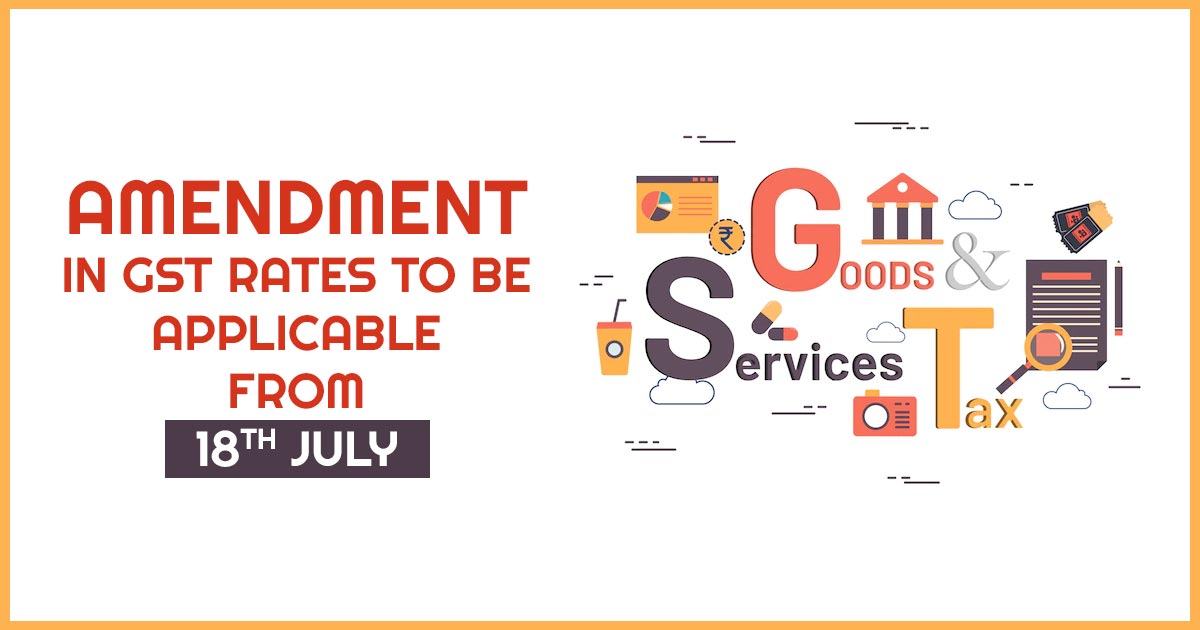
Various tax rate amendments, along with the low-cost hotel accommodation, expensive hospital room rent, solar water heaters, coal bed methane, cheques, and select farm equipment, would get forced from 18th July and the online retailers would be exempted on the need of registration on par with brick-and-mortar traders with effect from 1 January, specified by the FM Nirmala Sitharaman post to the two-day 47th meeting of the GST official that arrives here.
The Finance minister mentioned that the administration provides the ministerial committee led by Karnataka chief minister Basavaraj Bommai more time to suggest further GST rate rationalization steps post accepting the recommendations to take back the tax privilege and rectify the tax issues.
FM elaborated that the proposed GST rate rationalization was needed to restore the revenue neutrality in the transfer to GST via the former indirect tax regime 5 years ago.
Towards high inflation, the Bommai committee postponed conducting suggestions on any major tax rate rejig in its interim report.
The tax exemptions would be withdrawn on some of the things and the same would be taxed according to the decision of the council. The same consists of cheques at 18% pre-packaged and pre-labelled items such as curd, lassi, and buttermilk at 5% and maps at 12%. Indeed the capital goods used in the petroleum and coal bed methane exploration would get taxed at 12% rather than 5%.
The administration has decided to increase the GST rates on items like ink, knives, and pumps from 12% to 18% and solar water heaters from 5% to 12%.
In addition, cut and polished diamonds will attract 1.5% GST, up from 0.25% now. Furthermore, hotels with rent less than Rs 1,000 a night will draw 12%, and non-ICU hospital rooms with rent above Rs 5,000 will be taxed at 5% without ITC.
The online trader will be treated likewise to the offline traders for the GST enrollment needs with respect to intra-state trade. Till now they require GST enrollment no matter whatever their sales are.
Now they would not need enrollment if the yearly sales are up to Rs 40 lakh for the trade in goods across the state and Rs 20 lakh for trade in services within the state.
The traders would now be permitted to make intra-state sales through e-commerce operators who have signed up for a presumptive tax scheme—composition scheme.
From 1st January the same will come into force as it needs technical modifications to be made on portals by e-commerce platforms.
No decision is being selected by the council for the demands of more than a dozen state ministers that their tax revamps concerned revenue loss must get compensated after June when the present scheme lapses.
Read Also:- Online Sellers Get Enrollment Relief in 47th GST Council Meeting
“Broadly, statements were made that if not five years, but for some years, compensation should continue. I have heard them, “minsters articulated.
The same would likely happen that the centre might investigate the problem up to March 2026, this can collect more than the amount required to repay Rs 2.69 trillion of loans raised to provide the assistance for liquidity for states in covid time.
In the fiscal year 2023, the centre would plan Rs 1.2 trillion of GST compensation cess collection.
Further GST rate rationalization is very much on the Council’s table. The same would be the only thing for the technology to rectify any irregularity or the type of inefficiency that would pose a positive approach to the collection of the revenue, however, the decline in the revenue-neutral rate needs a rectification, specified by the Finance minister.
The revenue-neutral of GST the weighted average rate is required for the transition to the new indirect tax regime in the year 2017 to be a revenue-neutral affair for the exchequer would decrease throughout the years because of various stages of the tax reduction.
The minister indeed specified that the rectification of duty inversions was required to enter into the investments in the value chain. The administration indeed specified various measures to prevent the bogus entities from obtaining the GST registration.









